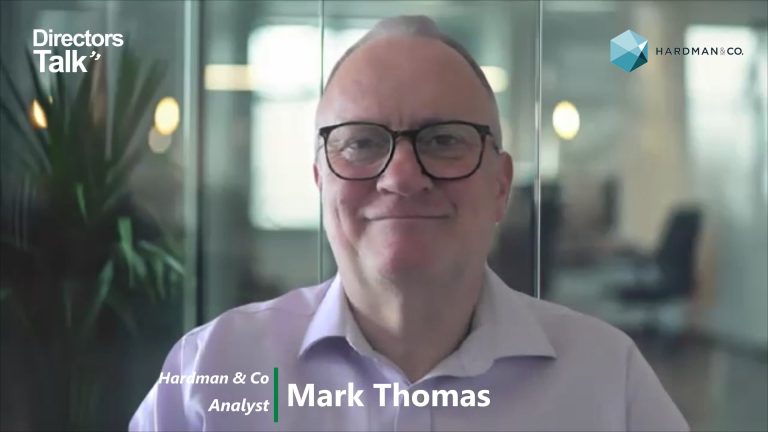Volta Finance Ltd (LON:VTAS) is the topic of conversation when Hardman and Co’s Analyst Mark Thomas caught up with DirectorsTalk for an exclusive interview.
Q1: You have recently written a report on Volta Finance. Can you tell me a bit about the company?
A1: Volta is a closed-ended investment company that invests in structured finance assets, primarily Collateralised Loan Obligations or CLOs. Looking though the technical jargon, what investors need to know is that the company earns a steady flow of interest from a hugely diversified loan portfolio with around 700 underlying borrowers. It invests in a range of instruments but that is the underlying risk. They aim to provide a stable stream of income to investors through quarterly dividends. There is of course a lot of skill in picking the right investments and Volta’s deep market understanding has identified assets mis-priced for risk.
Q2: I notice that when I go on your website, I have to tick a box confirming I am a “Relevant Person” and not a US person before I can get to the research. Why is that?
A2: The company is subject to a number of regulatory and legal restrictions. Unlike a normal company, but like many investment companies, these rules mean US investors should not get information about them. If your listeners want to look through the legalese about relevant person, the issue is that their investments can be complex and subject to sentiment-driven price volatility. The long term returns are all about the cashflows from the underlying loans but there may be a load of short term noise in any periods when markets get worried but to the medium to long term investor as long as defaults on underlying loans don’t rise significantly, the cash keeps rolling in. Indeed as we outline in our note short term noise is good news because it allows for reinvestment at higher rates, so boosting future cashflows. With the potential for short term volatility it is not an investment for the archetypal widow or orphan and should only be considered by sophisticated investors who understand volatility. Volta’s own Key Information Document has a recommended hold period of 6 years. The tick box gives the legal definition for those that are interested.
Q3: Your report looked at the managers March presentation. What did we learn?
A3: The key takeaways were Volta Finance’s flexible mandate means it can exploit whichever element of the CLO market offers the best opportunity. This is likely to see further allocations to CLO equity tranches in the near term. Second, the credit cycle is likely to turn but this should be gentle and create re-investment opportunities. We agree with the company on both points. Third the portfolio can be quickly re-positioned if market conditions change. Fourth, the management and board experienced the financial crisis.
Q4: In the section “Hardman comments” you particularly highlight covenant lite documentation and how it may affect the sector. Can you tell more about that?
A4: Our market feedback is that cove-lite documentation has not only weakened in terms of issuance add-ons, EBITDA leverage and the use of adjusted EBITDA, but there has also been a noticeable reduction in covenants around asset sales. A senior credit officer suggested the effectiveness of covenants is now weaker than in 2007. We concur with management’s view that, ceteris paribus, this will see lower default rates and lower recoveries (with a net unknown impact on expected ultimate loss). Part of the unknown effect is how many companies will be able to survive for longer because of the covenants and if they do so will they then be able to recover with greater benefit from looser fiscal/monetary policies. The effect on sentiment to CLO stocks is also unclear. We believe that lower defaults are highly likely to be well received and that there would be less over-reaction on the downside as a consequence. We suspect that the offsetting negative sentiment that may be expected from lower recovery rates could be delayed until there is more visibility of the actual numbers. We are more optimistic, therefore, than management that sentiment-driven volatility will be reduced following weakened covenants.










































